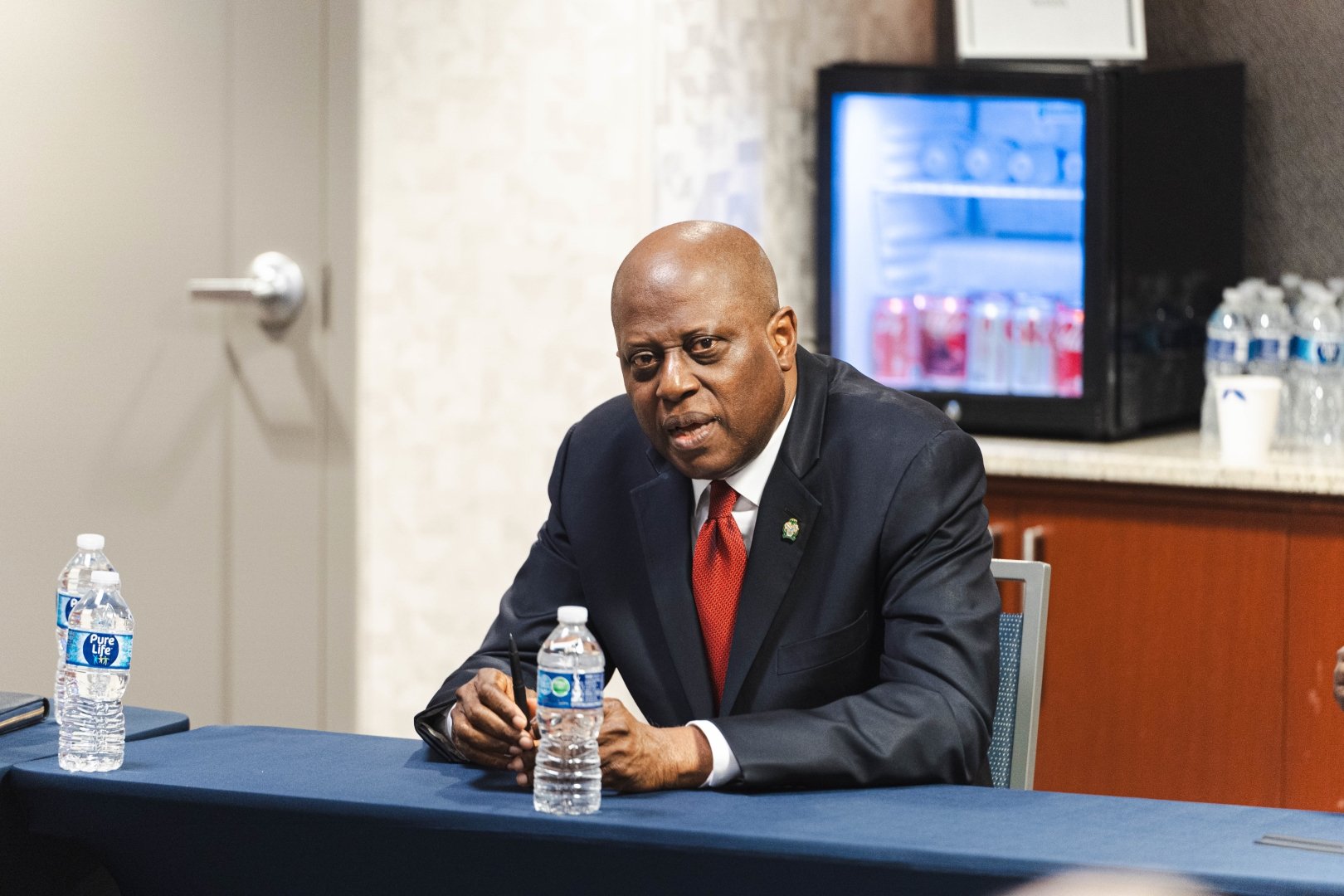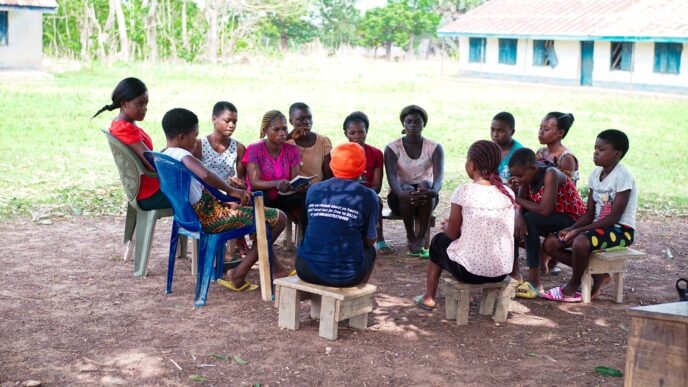Olayemi Cardoso, governor of the Central Bank of Nigeria (CBN).
BY ISAH ALIYU CHIROMA
Olayemi Cardoso, in his keynote address at the Chartered Institute of Bankers of Nigeria (CIBN) annual dinner on November 29, 2024, outlined the Central Bank of Nigeria’s (CBN) strategy to stabilise the nation’s economy, emphasising decisive actions to address inflation, manage foreign exchange markets, and strengthen the financial sector.
This approach aims to position Nigeria for success amid global and domestic challenges, reflecting the bold reforms necessary to secure sustainable growth and protect livelihoods. The governor’s remarks highlighted the complex relationship between Nigeria’s domestic economy and the global economic landscape. While global inflation has eased, a subdued growth rate of 2.6 percent presents ongoing challenges. Geopolitical tensions, trade fragmentation, and a slowdown in China’s economy have further dampened global prospects.
In Sub-Saharan Africa, modest growth of 3.6 percent is overshadowed by persistent double-digit inflation and unsustainable debt levels, highlighting Nigeria’s economic vulnerabilities as part of a broader regional struggle. These difficulties create a challenging environment for policymakers who must navigate the delicate balance between internal and external economic pressures.
Advertisement
This context underscores the need for comprehensive and adaptive reforms. Nigeria cannot tackle its challenges in isolation and must stay attuned to external risks while leveraging domestic strengths. The CBN’s approach to managing inflation, maintaining fiscal discipline, and regulating exchange rates reflects this understanding.
The intricacies of the global market require that Nigeria position itself not just as a participant but as a competitive player capable of responding proactively to external forces. A key aspect of the CBN is the aggressive strategy for controlling inflation. Once as high as 27%, inflation has begun to decline, thanks to decisive monetary tightening that raised the Monetary Policy Rate (MPR) to 27.5 percent. This significant increase serves as a critical tool to curb inflationary pressures and stabilize the purchasing power of consumers.
However, while tightening monetary policy is necessary to combat inflation, it simultaneously restricts credit availability, impacting investment and economic growth. Moving forward, the challenge lies in balancing inflation control with the need to stimulate economic growth. Governor Cardoso expressed cautious optimism for 2025, projecting a downward trend in inflation. Despite this outlook, the road ahead is fraught with challenges, particularly if economic growth does not pick up pace.
Advertisement
The CBN’s ability to navigate this dual mandate of controlling inflation while promoting growth will require careful calibration of monetary tools. This balancing act is vital for ensuring that Nigeria’s economy remains dynamic and vibrant, thus avoiding potential stagnation that could arise from prolonged restrictions on credit.
Governor Cardoso’s decision to end deficit financing through the controversial Ways and Means advances marks a significant shift toward fiscal discipline. This move not only restores market confidence but also reaffirms the CBN’s commitment to transparency. By addressing quasi-fiscal activities—those that lie outside the formal budgetary process—the Bank is taking steps to distance itself from opaque practices that have previously undermined trust in the financial system. An emphasis on accountability is essential, especially in fostering public confidence in financial institutions.
The unification of exchange rates, another critical reform, has eliminated market distortions and promoted transparency in the foreign exchange market. Clearing $7 billion in outstanding FX obligations and introducing an electronic FX matching system are significant achievements. These measures have fortified foreign reserves to $40 billion and boosted foreign portfolio inflows by 72% in 2024, laying the groundwork for a more stable and predictable economic environment. Restoring confidence in Nigeria’s foreign exchange market is crucial for attracting foreign investment and stabilizing the naira, which enhances economic prospects.
The resilience of Nigeria’s banking sector stands as a vital pillar for the country’s economic recovery. With non-performing loans remaining within prudential limits and liquidity ratios exceeding regulatory benchmarks, the banking industry is well-positioned to withstand economic shocks. This resilience is underscored by the fact that a strong banking sector can facilitate credit flow to productive sectors, thereby stimulating economic growth and supporting job creation.
Advertisement
Efforts to bolster capital buffers ahead of the 2026 deadline further illustrate the CBN’s proactive approach to safeguarding financial stability. By enhancing the capital adequacy of banks, the CBN reinforces their ability to weather economic downturns and maintain lending activities. Additionally, Governor Cardoso’s focus on enhancing the role of Other Financial Institutions (OFIs), such as primary mortgage banks and microfinance banks, aligns perfectly with Nigeria’s broader goals of financial inclusion.
These institutions are crucial for expanding access to credit for underserved populations. Given that a significant portion of Nigeria’s population remains unbanked, facilitating their access to financial services can drive grassroots economic activity and contribute to social equity.
Digital innovation is transforming the financial landscape globally, and the CBN has embraced this change through forward-thinking initiatives. The doubling of diaspora remittances in 2024, facilitated by the introduction of non-resident BVN registration, reflects growing confidence in Nigeria’s financial reforms. This improvement is vital since remittances play a significant role in supporting the livelihoods of many Nigerian households.
Additionally, the burgeoning fintech ecosystem has positioned Nigeria as a hub for innovation in Africa. The rise of fintech provides opportunities for increased financial inclusion, improved access to financial services, and enhanced efficiency in financial transactions. As the CBN continues to foster this environment, emerging technologies can further democratize access to finance, benefitting millions.
Advertisement
The CBN’s Vision 2025 strategy, which includes advancing digital payments, reassessing the e-Naira framework, and strengthening open banking systems, aims to improve accessibility and efficiency. The development of digital payment systems promises to reduce transaction costs, enhance security, and expand the reach of financial services, particularly in rural areas.
By incorporating stronger Know Your Customer (KYC) protocols and anti-fraud measures, the CBN aims to establish a secure and inclusive digital financial ecosystem. These efforts position Nigeria to harness the benefits of technological advancements while safeguarding against potential risks.
Advertisement
Governor Cardoso’s vision for Nigeria’s economic future hinges on a multifaceted approach that encompasses monetary tightening, fiscal discipline, financial sector resilience, and digital transformation. Each element of this strategy is interconnected, highlighting the need for a holistic response to the challenges facing the Nigerian economy. By pursuing adaptive reforms and remaining vigilant to external risks, Nigeria can navigate the complexities of the global economic landscape while fostering a stable and inclusive domestic environment.
In light of ongoing global uncertainties, the CBN’s focus on sustainable growth is essential for fostering resilience against future economic shocks. As Nigeria continues on this path, it is imperative that stakeholders—government, financial institutions, and the private sector—work collaboratively to support these initiatives.
Advertisement
By doing so, Nigeria can secure its position as a leading economy in Africa, driving growth that benefits all citizens and ensuring a prosperous future.
Isah Aliyu Chiroma is a public affairs analyst with interest in economic policies. He writes via [email protected]
Advertisement
Views expressed by contributors are strictly personal and not of TheCable.
Add a comment








